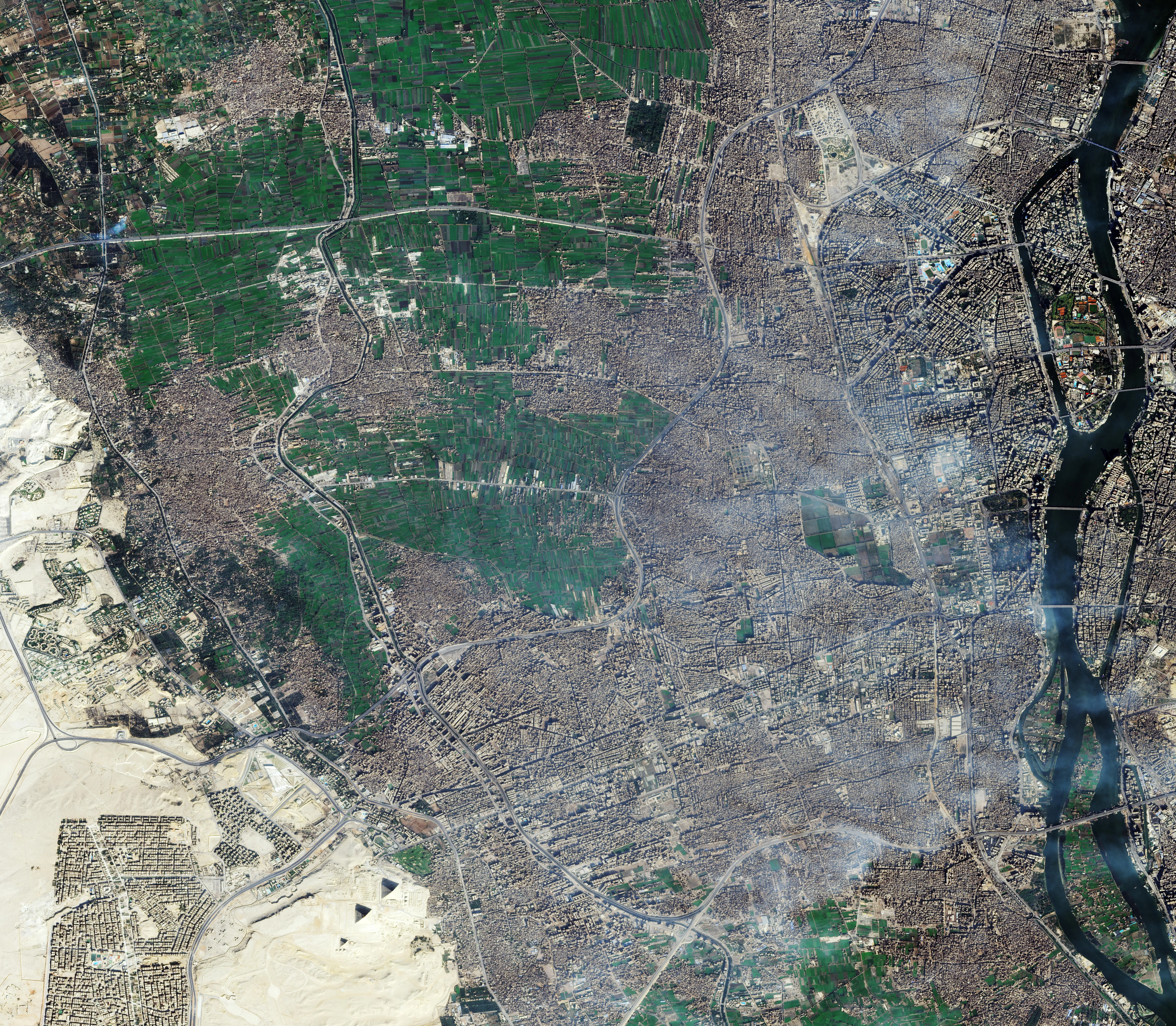High-Resolution Gaze: Giza and Its Pyramids from Space
Gaze upon one of humanity's most enduring marvels, the Giza Pyramid Complex, as captured in stunning high-resolution detail from orbit. This incredible image, acquired by the Vision-1 mission, offers a unique perspective on this ancient site and its vibrant modern surroundings.
Unveiling Ancient Wonders from Orbit
In the lower left of this expansive image, the iconic Giza Pyramid Complex emerges, bathed in sunlight and casting long, distinct shadows. The northernmost and largest of the trio is the Great Pyramid of Khufu (Cheops), an engineering marvel constructed around 2600 BC. Adjacent to it stands the pyramid of Khafre, followed by the southernmost and smallest, the pyramid of Menkaure, built approximately 2510 BC.
Beyond the main pyramids, the intricate details of the complex unfold. Smaller pyramids, serving as burial sites for other members of the royal family, are visible near the Khufu and Menkaure pyramids. The precise square structures of mortuary temples, once integral to the ancient burial rituals, can also be discerned close to each major pyramid. To the east of Khafre's pyramid, the legendary Great Sphinx, one of Egypt's most famous landmarks, can be recognized, standing guard over millennia of history.
A Modern Marvel: The Grand Egyptian Museum
Approximately two kilometers northwest of the ancient pyramids lies a monument to modern archaeology: the Grand Egyptian Museum. This striking, white, rhomboid structure, surrounded by expansive plazas adorned with date palms, is clearly visible in the image. Occupying a vast 50-hectare plot, it stands as the largest archaeological museum in the world, a testament to Egypt's rich heritage and its commitment to preserving it.
Giza: Where Ancient Meets Modern
What often surprises viewers of such satellite imagery is the close proximity of these ancient wonders to a bustling modern metropolis. The pyramids, though relics of a distant past, are not isolated in a desert expanse but border the urban sprawl of Cairo, illustrating a unique blend of history and contemporary life. Satellite views also offer a clearer geographical understanding; for instance, the position of the Nile River relative to the pyramids, which may have shifted over millennia or had closer branches in antiquity. This remarkable juxtaposition reminds us that these historical treasures are part of a living, evolving landscape.
The Power of Earth Observation
This image from the Vision-1 mission highlights the incredible capabilities of satellite technology in providing unparalleled insights into our planet's geography, history, and urban development. From surveying ancient landscapes to monitoring modern cities, Earth observation satellites like Vision-1 offer a truly global perspective.





